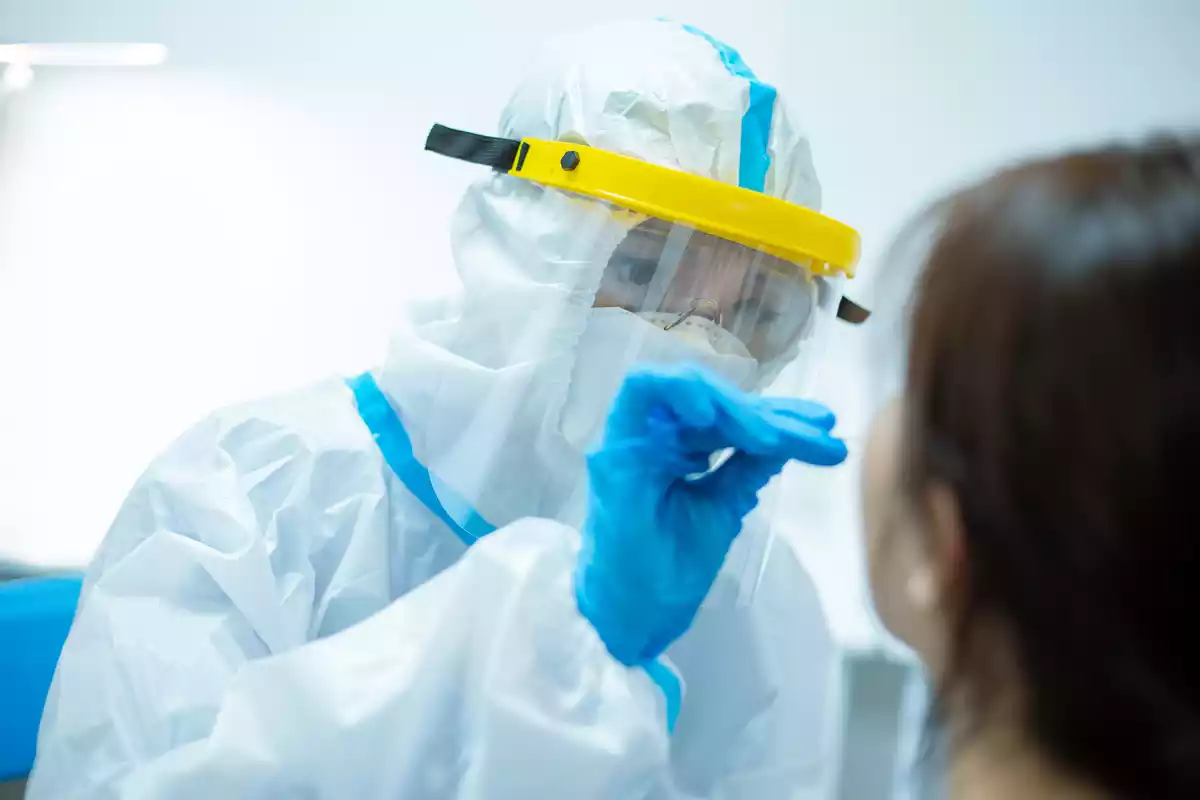
One year after the WHO declared the health crisis generated by coronavirus as a global pandemic, the key to detecting possible cases before even undergoing a PCR test is still being sought. To this end, many experts are trying to determine the most common symptoms in those who end up testing positive.
Although it is obvious that the only definitive way to know if we have been infected is through a test, either a PCR or an antigen test, some doctors believe that there may be some symptoms that allow us to rule out from the outset that we are not suffering from other similar diseases such as the flu.
This is the focus of a study carried out by various doctors at the Ivano-Frankivsk University, located in the Ukrainian city of the same name. Their research has focused on analyzing the "predictive capacity" of a possible positive case of COVID having detected the most common symptoms, such as fever, myalgia, cough, runny nose, sore throat, nasal congestion or rhinolalia.
Their results reflect that at least four of them are "key" signs to be able to indicate quite reliably that a person may have been infected with coronavirus. On the one hand, they consider it highly proven that a person with hyperthermia (fever), myalgia (muscle pain), nasal congestion and rhinolalia will eventually test positive for coronavirus. On the other hand, it is not as relevant to have a runny nose, a cough or a sore throat.
Although this study is still at a preliminary stage and is awaiting analysis by other experts, its results show a clear indication of these symptoms. When the patient detects that they have a fever, muscle pain or nasal congestion, a picture of the disease is confirmed and these are, therefore, "key symptoms for a prognosis of mild COVID-19". Also, when a doctor detects rhinolalia or small phonetic problems, this also ends up being a "key diagnostic symptom".
How they evaluated the different symptoms to see if they could detect a positive result
To carry out their study, the doctors used a four-point scale to analyze each of the symptoms. In this investigation, 120 people between the ages of 18 and 72 were studied, all of whom were clearly suspected of having mild coronavirus. After the analysis of their symptoms, they were all subjected to a PCR test.
In the end, the results of these tests showed that 96 of them tested positive while the resulting 24 were negative. And what the study reflects is that of these people who tested positive, plenty of them had the symptoms discussed. "When symptoms were evaluated by a doctor according to the correlation analysis, hyperthermia, myalgia, nasal congestion and rhinolalia reached a positive predictive value with a significance level higher than 0.6," the study states.
They also explain that "something similar happened with the patient's self-assessment of symptoms: when they detected fever, myalgia and nasal congestion, they obtained a diagnostic accuracy with a significance level of more than 0.5".
Moreover, it was different with those with the other symptoms mentioned. The conclusion reached with the cough, nasal discharge or sore throat is that "they have almost no predictive value for making a clinical diagnosis of mild coronavirus".
Thus, the authors of this study, while awaiting corroboration, insist that detecting these symptoms can help to make a clinical diagnosis prior to testing that leads to initiating the necessary isolation immediately.
[This is a translation of the original article "Los 4 síntomas que pueden confirmar, antes de la PCR, que darás positivo por covid" published in espanadiario.net]

